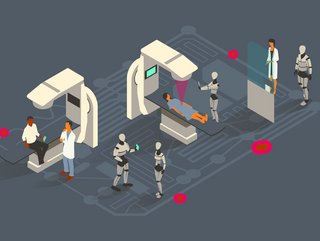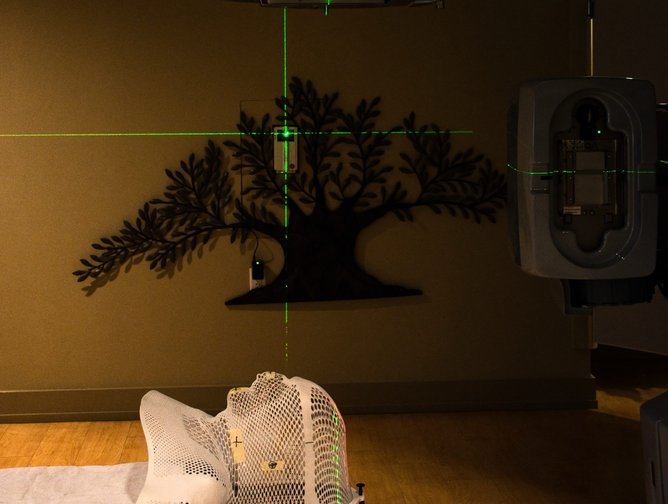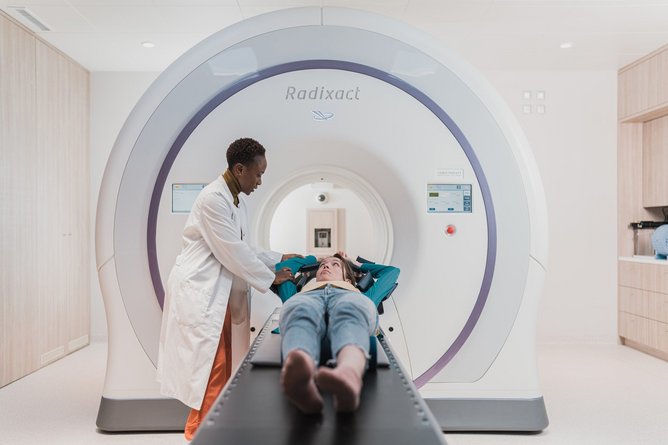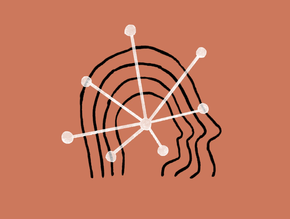AI breakthrough in cancer radiotherapy treatment & recovery

Very recently, AI magazine reported that the UK Department of Health and Social Care (NHS) has taken a significant step towards revolutionising healthcare by allocating a £21m fund for the implementation of AI technology within the NHS.
The primary objective is to reduce the time taken to diagnose patients, particularly for life-threatening illnesses.
Now, cutting-edge AI technology has emerged as a breakthrough in cancer treatment, significantly reducing waiting times for patients undergoing radiotherapy.
This revolutionary technology, developed in collaboration between researchers at Addenbrooke's Hospital and Microsoft, has been hailed as a remarkable advancement in the field.
With the potential to enhance the precision and efficiency of therapeutic radiation beams, this AI program demonstrates promising results in targeting cancerous cells while sparing healthy tissues.
Moreover, the National Health Service (NHS) in England has taken the initiative to offer this technology at cost price to all NHS trusts, making it accessible to a broader range of patients.

Accelerating treatment planning
Traditionally, doctors spend considerable time manually analysing hundreds of scan cross-sections, meticulously outlining organs and bones before initiating radiotherapy.
This process can consume anywhere from 25 minutes to two hours per patient.
However, the AI program developed through the collaborative efforts of Addenbrooke's Hospital and Microsoft operates 2.5 times faster, expediting the treatment planning process significantly.
Ensuring the precise targeting of therapeutic radiation is crucial to minimise the damage to nearby healthy tissues and organs.
For instance, when treating prostate cancer, doctors strive to prevent harm to adjacent organs like the bladder or rectum, which could result in long-term continence issues for patients.
Dr. Raj Jena, the leading researcher at Addenbrooke's Hospital, stresses the importance of avoiding such complications, as they can drastically impact patients' quality of life, often dictating their daily routines.
With the implementation of the AI program, doctors can accurately delineate the treatment area, optimising the balance between destroying cancer cells and preserving healthy tissue.
Training the AI
To develop this groundbreaking technology, Dr. Jena collaborated with Microsoft to train a program called InnerEye using data from previous patients.
This AI program underwent rigorous evaluation and safety checks, supported by a £500,000 investment from the NHS Artificial Intelligence Laboratory.
Subsequently, a manufacturer has been granted access to the cloud-based technology, allowing other NHS trusts to benefit from its capabilities at a cost price.
While the AI program aids in treatment planning, it is important to note that doctors still review and verify the contours generated by the AI.
Nevertheless, the program has demonstrated an impressive accuracy rate of approximately 90%.
In many cases, clinicians approve the AI's work without any further corrections, indicating their trust and reliance on its capabilities.

Dr. Jena explains that some consultant colleagues even prefer to begin with the AI-generated work rather than relying solely on their peers' input.
The development of this NHS-developed AI program as a medical-imaging device marks a significant milestone.
The UK government has been investing in AI projects across the NHS, recognising their potential to revolutionise healthcare.
AI technologies hold promise in accelerating diagnostic processes, aiding early disease detection and ultimately improving patient outcomes.
It is crucial to emphasise that AI should not be seen as a replacement for highly trained medical professionals.
Instead, it serves as a valuable tool that complements their expertise, enabling them to provide more efficient and accurate care.
The introduction of AI technology into cancer radiotherapy represents a groundbreaking advancement, effectively reducing waiting times for patients and streamlining the treatment planning process.
With the NHS offering this cutting-edge technology at cost price to all NHS trusts, its benefits will extend to a larger population.
While AI continues to evolve and play a significant role in healthcare, it is essential to acknowledge that medical professionals remain indispensable in delivering personalised and expert care.
The integration of AI and clinical expertise creates a formidable force that has the potential to revolutionise patient care and improve outcomes.






